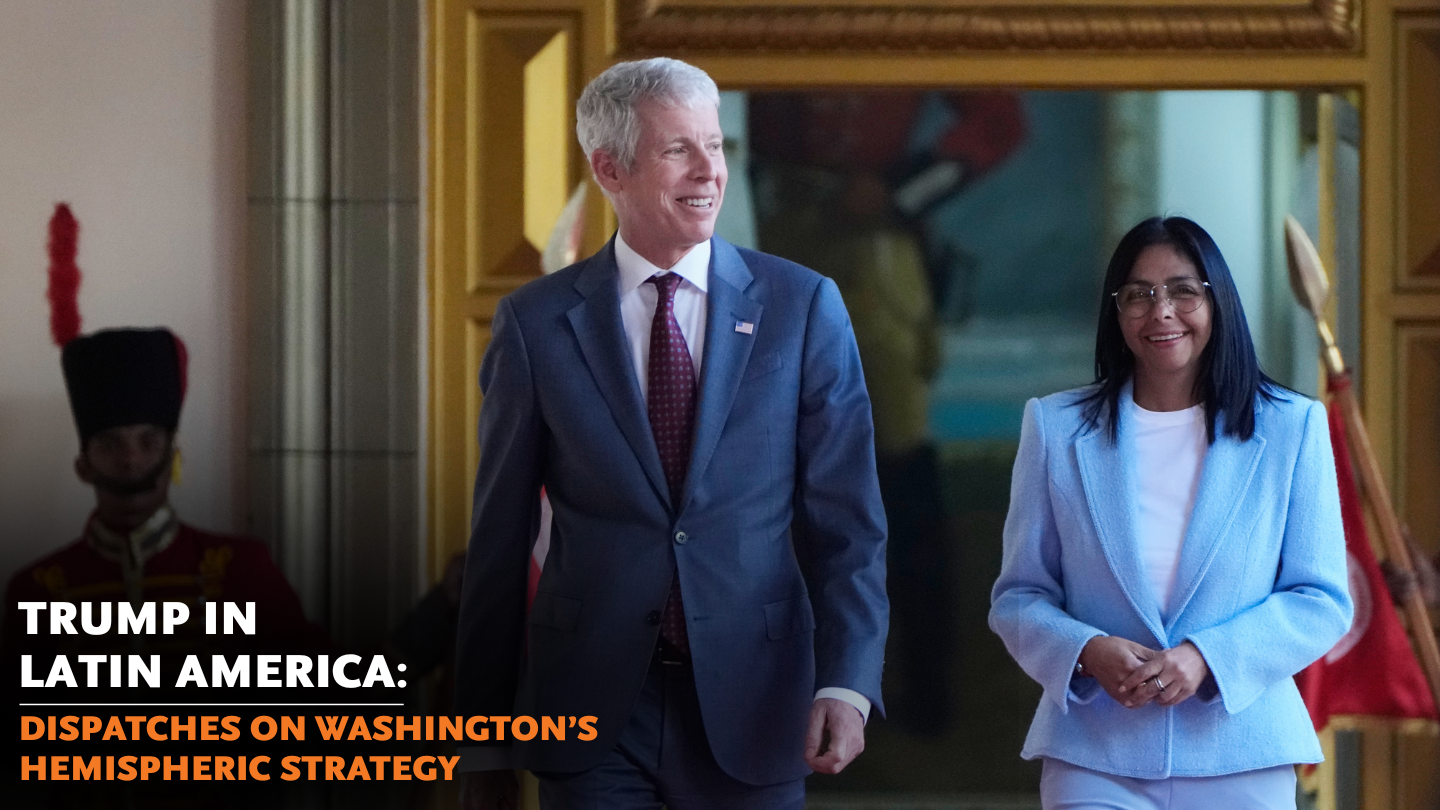We Should Help Colombia
We Should Help Colombia
In an op-ed to the Miami Herald, Senator Richard Lugar urges Congress to support Colombia's efforts to boost security by passing free-trade legislation.
The U.S. policy in Latin America is in trouble. Thanks to the failure of U.S. immigration legislation and to populist disillusionment with economic and pro-democracy reforms, among other elements, we are seeing a rise of anti-Americanism and of governments that are hostile, or at least cool, to American policies.
A key factor in this disturbing trend is the slow dissolution of U.S. leadership for a pro-trade agenda on a regional scale, which is seen as a sign of U.S. inattention to Latin matters other than the war on drugs and immigration.
A case in point is Colombia, where President Clinton launched an effort, continued by President Bush, to break the drug lords' stranglehold on that country and stem the flow of cocaine into the United States. The program, dubbed Plan Colombia, has made Colombia the third-largest recipient of regular U.S. foreign assistance, after Israel and Egypt.
Under very difficult circumstances, Plan Colombia has achieved important gains and enjoys bipartisan support in Congress. But the situation remains precarious.
Congress now has a chance to consolidate the progress and do more to stabilize Colombia by passing a recently-negotiated free trade pact, known as the Colombian Trade Promotion Agreement. This would provide new markets for U.S. exporters as well as jobs and income for hundreds of thousands of Colombians.
Equally important, it will send a strong signal to the region, where anti-Americanism is being stoked by Venezuela's Hugo Chávez and others, that the United States stands by its friends.
Kidnappings down
Unfortunately, some in Congress want to block the bill as a means of protesting a wave of unsolved killings of trade union leaders. I deplore these murders, but we should not react to them in a way that hurts the economic prospects of all Colombians and further damages America's interests in Latin America.
Plan Colombia has brought the country back from the brink of a failed state. During the past six years kidnappings, once rampant, are down substantially, and a sky-high murder rate has been slashed. A program to demobilize the tens of thousands of paramilitaries is underway, and economic growth is stirring.
Much more needs to be done. President Alvaro Uribe's government must work harder to break up the drug-running paramilitary groups whose vast wealth feeds corruption. They are believed to be behind many of the extra-judicial killings, including those of union leaders, which have remained at a stubbornly high level. Colombia still supplies 90 percent of the cocaine entering the United States.
There is no quick fix to this violence, but passing the free trade bill could help the situation by attracting investment, boosting jobs and cutting poverty. Colombians expect it will contribute to overall development and expand opportunity to all sectors of society. For many Colombians, it has become a litmus test of the relationship.
This agreement includes worker protections and safeguards similar to the pending trade pact with Peru, which enjoys bipartisan support and is expected to pass this Congress. Colombia's own private sector unions have endorsed the deal.
Meanwhile, we should redouble our efforts to help Colombia end the unionist killings. The United States is currently providing funding and pressing Uribe's Justice Ministry to pursue politically motivated murders of union officials. The ministry has created a unit to deal with these murders and has made a list of 204 priority cases, obtaining 39 convictions so far. These are positive steps.
Passage of this trade agreement would leverage our considerable aid commitment. It will not guarantee Plan Colombia's success. But a defeat might contribute to its failure by leading to a weaker Colombia. Equally important, a no vote would hurt U.S. relations with many Latin American countries who, like the Colombians, would see us as abandoning the Colombian people and government, among our best friends in the region. It would reinforce the perception that we care only about drugs, not about engagement or development. It would also embolden anti-free market leaders committed to mischief and to increasing their influence at America's expense.
The goal: A stable Colombia
My congressional colleagues must keep this larger view in mind. Former Democratic members of Congress and cabinet officials, in an open letter, have expressed strong support for the new Latin trade deals: ''There is nothing more important for U.S. national and economic security interests in the region,'' they wrote.
Republicans and Democrats want a stable Colombia and a strong U.S. role in the Americas. We should work toward those goals, together, by passing the Colombia trade legislation.
Sen. Richard Lugar, R-Ind., is ranking member of the U.S. Senate Foreign Relations Committee.
Used with permission of the Miami Herald. Copyright 2007. All rights reserved.








